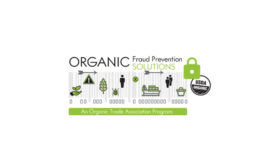Home » Keywords: » organic dairy products
Items Tagged with 'organic dairy products'
ARTICLES
Producers of organic dairy should highlight their products’ transparency, healthfulness and sustainability to attract today’s informed consumers.
Read More
Value-added dairy products are poised for growth
Dairy products with extra benefits are poised to grow globally
April 10, 2020
Straus Family Creamery facilities receive True Zero Waste certification
The company has the first such certified dairy manufacturing facility.
November 13, 2019
Organic Trade Association launches fraud prevention program
The program represents a major step by the organic industry to fight fraud.
March 6, 2019
Organic and natural food options are on the rise
Informed and engaged consumers seeking more natural and organic food options are driving growth for the organic/natural channels.
June 5, 2018
Dairy processors must watch trends in farming, retailing
Dairy processors deal with all three of these constituencies as buyers, sellers and brand marketers. Your success depends upon the quality of your relationships with each.
May 5, 2017
Dairy processors focus on clean ingredients, new organic dairy products
As more dairy processors are answering the call for cleaner labels, retailers are adding more shelf space for such foods and beverages. Also, consumers are increasing their purchases of organic products.
June 3, 2016
Retail prices
The spread between half-gallon organic and conventional milk rose 21 cents to $1.88
Retailers’ ads focus on butter, cottage cheese and milk gallons; yogurt and cheese not so much.
April 26, 2015
Organic growth
United States streamlines organic trade with Korea
Valued at $35 million annually now, it could double in five years, says the Organic Trade Association.
July 1, 2014
Stay ahead of the curve. Unlock a dose of cutting-edge insights.
Receive our premium content directly to your inbox.
SIGN-UP TODAYCopyright ©2025. All Rights Reserved BNP Media.
Design, CMS, Hosting & Web Development :: ePublishing











